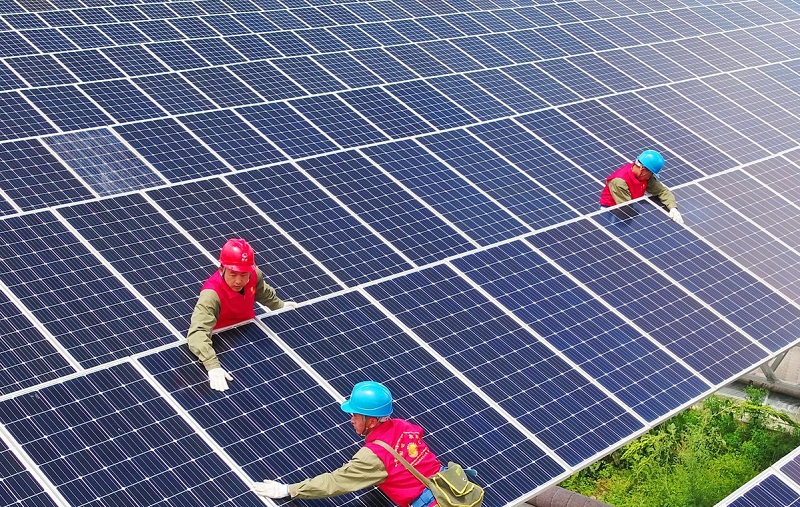Top legislature approves first energy law

State Grid employees check solar power panels in the Tibet autonomous region. [Photo by SONG WEIXING/FOR CHINA DAILY]
China's first energy law was approved on Friday at the 12th session of the Standing Committee of National People's Congress, the top legislature, and will come into effect on Jan 1, 2025.
It includes nine sections, covering stipulations on energy planning, development and utilization, energy market systems, energy reserves and emergency measures, energy technology innovation, supervision and management, legal responsibilities, supplementary provisions, etc.
Experts noted that as the world's largest energy producer and consumer, China has long lacked a fundamental and overarching energy law. The introduction of the energy law on Friday will fill this legislative gap, significantly strengthening the legal foundation in the energy sector, ensuring national energy security and promoting green and low-carbon transformation.
Wang Peng, a professor from the North China Electric Power University, said the energy law will enhance the internal drive for green consumption.
"It sets clear goals for green energy development and specifies responsibilities of entities involved. It also makes clearer the requirements on various types of renewable energy development including hydropower, wind energy, solar energy, etc," Wang said.
"For instance, in the development and utilization of wind and solar energy, the law requires a combination of centralized and distributed systems and lays a legal foundation for distributed power trading, microgrids and other business models," he said.
Wang said the new energy law also strengthens the institutional support for green energy consumption, as article 34 calls for the establishment of mechanisms using ways such as the green electricity certificates to promote green energy consumption.
- Top legislature schedules session for Wednesday
- China's top legislator meets with British PM
- China's top legislator holds talks with president of Senegalese National Assembly
- China's top legislator meets with Finnish PM
- Top legislator calls for advancing people's congress work in line with Party, State priorities



